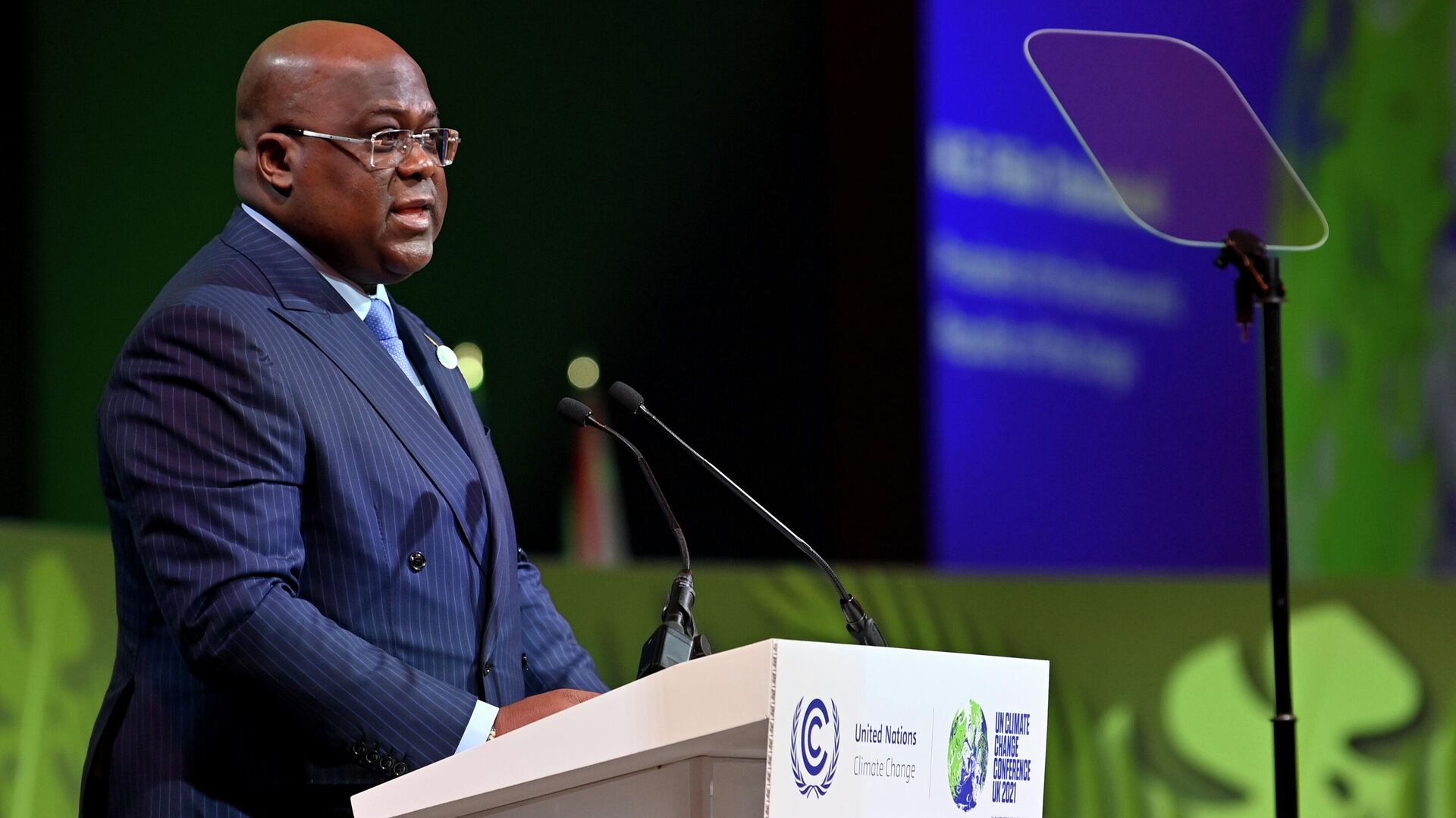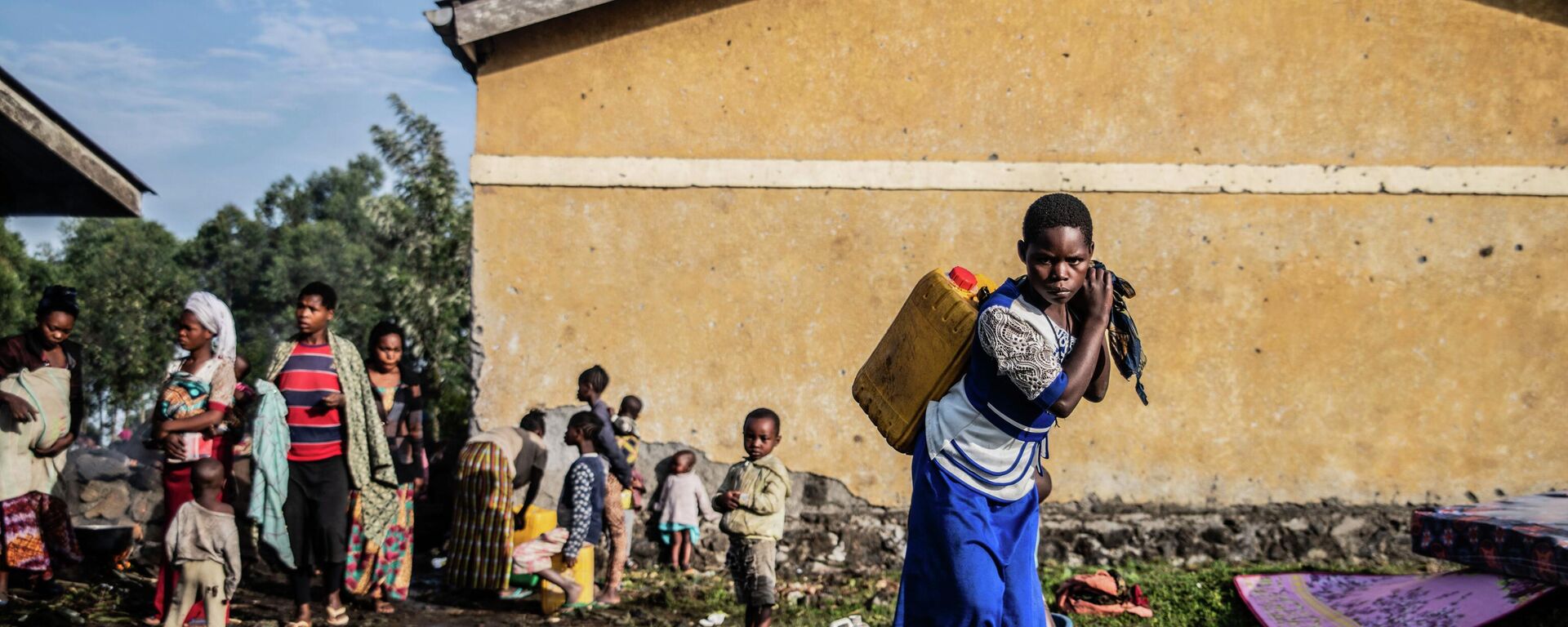‘No Doubt’: DR Congo’s Tshisekedi Accuses Rwanda of Backing M23 Rebels
21:16 GMT 06.06.2022 (Updated: 11:10 GMT 24.11.2022)
Subscribe
At the height of the Congo Wars, rebels backed by Rwanda, Uganda, and several other states overthrew the government of Zaire in 1997, part of the political fallout of the 1994 Rwandan Genocide. However, war persisted for another decade, pulling in a number of African nations and killing more than 5.4 million people.
In his first public remarks on the growing crisis with Rwanda, Democratic Republic of the Congo President Felix Tshisekedi said on Sunday that there was “no doubt” Kigali was backing a new uprising by Tutsi rebels in Congo’s North Kivu Province.
Democratic Republic of the Congo President Felix Tshisekedi said Sunday there was "no doubt" that Rwanda was backing a rebellion on their territory, but insisted he was still seeking peaceful relations with Kigali.
"I have always maintained that you have to build bridges rather than walls," Tshisekedi said on state television. "Unfortunately, today, we are where we are."
Tshisekedi said his country desired peace, but this “does not constitute an opportunity for neighbors to come and provoke us.” He directly accused Rwanda of supporting M23 in order to “come and attack the DRC."
Notably, Tshisekedi spoke not in Kinshasa, but on the opposite side of Pool Malebo in Brazzaville, the capital of the Republic of the Congo, during a meeting with RoC President Denis Sassou Nguesso.
His comments are the latest posturing in central Africa over the rapidly intensifying conflict in North Kivu, a Congolese province that borders Rwanda and Uganda and is known for its mineral wealth.
Last week, Kinshasa suspended flights over its territory by the Rwandan national airline RwandAir, and Tshisekedi summoned Kigali’s envoy demanding answers about its alleged support for M23. Several incidents near the Congo-Rwanda border last week further turned up the heat, including several Congolese rockets fired at M23 forces that landed on the Rwandan side of the border and caused injuries, and the kidnapping of two Rwandan soldiers on the border by the Armed Forces of the Democratic Republic of the Congo (FARDC) and, allegedly, the Democratic Forces for the Liberation of Rwanda (FDLR). The FDLR is a Hutu Power-related group led by acolytes of those who carried out the 1994 genocide in Rwanda in which two-thirds of Rwandan Tutsis, or 800,000 people, were murdered by Hutu supremacists.
In response, Rwandan Foreign Minister Vincent Biruta declared that "[if] the attacks continue, Rwanda will have the right to respond and to protect the security of the country, to protect the security of its citizens, and we have means to do that."
The March 23 Movement (M23) arose in the final stages of the Congo Wars, a series of conflicts that were sparked by the remnants of the Hutu Power movement who fled into Kivu after being driven from power during the Rwandan Genocide. The new Tutsi-led Rwandan government went to great lengths to chase down the Hutu rebels, who threatened a new invasion of Rwanda and were attacking Tutsis living in DR Congo.
In 2009, the Tutsi rebel group National Congress for the Defense of the People signed a peace deal with Kinshasa and integrated into the regular military, but some of their members rebelled in 2012 and adopted the name M23, accusing the government of failing to implement the peace deal in Kivu. The following year, they accepted a new peace deal, but then in November 2020, rebelled once again, accusing the government of failing to live up to its agreements.
The UN has also accused Kigali of backing M23; the government has denied the accusations. The M23 has primarily fought the DPLR.
MONUSCO, the UN peacekeeping mission in DR Congo, has some 14,000 troops in the country, most of them in North Kivu in an attempt to keep the various factions there from engaging in open warfare or in crimes against humanity, such as rape and the empressment of child soldiers.
The intermittent fighting since November has displaced some 70,000 people near the city of Goma on Lake Kivu. Across the country, some 5.6 million people are internally displaced - the most of any African country.
Both Rwanda and DR Congo were once colonies of Belgium, which brutally exploited the population to extract resources such as rubber and palm oil. Millions were killed before they achieved independence in the 1960s, and the divide-and-conquer ethnic divisions the Belgians created have persisted to the present day, causing distrust and violence.



